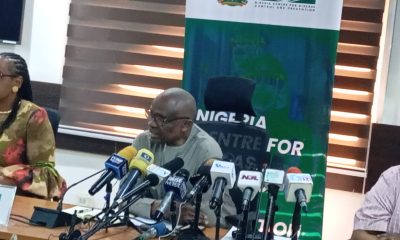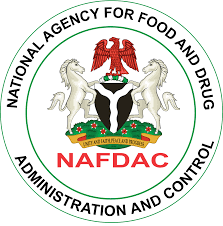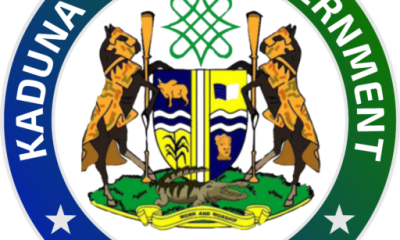Health
Malnutrition: UNICEF Alerts Nigeria Leading Africa

A report released by the United Nations Children’s Fund (UNICEF) says Nigeria’s 17 million undernourished children have placed the country in the top position of Africa’s malnutrition burden.
The UNICEF report, titled “Fed to Fail? The Crisis of Children’s Diets in Early Life”, released on Wednesday in Abuja, said that the country also held the second position in the global malnutrition burden.
The report was released ahead of the 2021 United Nations (UN) Food Systems Summit scheduled to take place during the UN General Assembly in New York, on Sept.
23.According to the report, one in three children in Nigeria is stunted and one in 10 children is wasted, setting the country off-track to achieve Sustainable Development Goal (SDG) 2; “Zero Hunger” by 2030.
“In an analysis of 91 countries, including Nigeria, half of the children aged six to 23 months globally, are not being fed the minimum recommended number of meals a day.
“Two-thirds, do not consume the minimum number of food groups they need to thrive. In Nigeria, one out of every three children is stunted and one out of every 10 children is wasted.
“As a result, close to 17 million Nigerian children are undernourished (stunted and/or wasted), giving Nigeria the highest-burden of malnutrition in Africa and the second highest in the world.
“Nigeria is off-track to achieve SDG2: Zero Hunger by 2030. To change this trajectory, the time to act is now to reimagine not just food, but health and social protection systems,” the report advised.
The UNICEF report said that children under the age of two were most vulnerable to all forms of malnutrition such as stunting, wasting, micronutrient deficiencies, overweight and obesity.
It said that this was a result of poor diets due to children’s greater need for essential nutrients per kilogram of body weight than at any other time in their life.
“Children carry the scars of poor diets and feeding practices for life.
“An insufficient intake of nutrients found to support growth at an early age puts children at risk of poor brain development, weak learning, low immunity, increased infections, and potentially, death.
“Globally, UNICEF estimates that more than half of children under the age of five with wasting which is about 23 per cent of children are younger than two years.
“The prevalence of stunting among children increases rapidly between six months and two years, as diet’s fail to keep pace with their growing nutritional needs.
The report said that the “2018 Nigeria Demographic and Health Survey” among children aged six to 23 months, estimates that only 23 per cent have the minimum necessary dietary diversity.
According to the report, the survey also estimates that only 42 per cent of children in this age bracket have minimum adequate meal frequency.
The report noted Rushnan Murtaza, the UNICEF Nigeria Deputy Representative, as saying that the food crisis in Nigeria had reached a crucial tipping point.
Murtaza said that only by joining hands with partners, government, and relevant stakeholders, could the Nigerian food system be transformed.
He said that when the system is transformed, better provision and access to diverse, nutritious, safe, and affordable diets for every Nigerian child would be achieved.
“The findings of the UNICEF report are clear; millions of children are not being fed diets adequate for their growth and development.
“Poor nutritional intake in the first two years of life can harm children’s rapidly growing bodies and brains, impacting their futures.
“Now more than ever, with the ongoing COVID-19 disruptions, we need to reimagine a food system that improves the diets of young children, including in Nigeria,” it stated.
The report warned that rising poverty, inequality, conflict, climate change-related disasters, and health emergencies such as COVID-19, were contributing to the ongoing nutrition crisis among the world’s youngest.
The UNICEF report said that before the COVID-19 pandemic, the nutrition crisis was already showing little sign of improvement in the last 10 years.
It said that COVID-19 has continued to disrupt essential services driving more families into poverty and affecting how families feed their children.
Estimates from a 2020 study conducted in Nigeria by UNICEF showed that many Nigerians were unable to afford healthy diets due to pre-existing food security challenges.
The report said that based on the 2020 study, an estimated 40.1 per cent of Nigerians could not cater to their food expenditure, adding that the COVID-19 pandemic is likely to worsen food insecurity in the country.
To deliver nutritious, safe and affordable diets to every child year-round, the report called on governments, donors, civil society organisations, and development actors to work hand-in-hand to transform food, health and social protection systems.
The report said this could be done by increasing the availability and affordability of nutritious foods including fruits, vegetables, eggs, fish, meat and fortified foods, and incentivising their production, distribution and retailing.
According to the report, transforming the system also includes implementing national standards and legislation to protect children from unhealthy processed and ultra-processed foods and beverages.
“Harmful marketing practices targeting children and families should end.
“Increase the desirability of nutritious and safe foods through multiple communication channels including digital media to reach parents and children with easy to understand, coherent information,” the report added.
Murtaza said that the UN food systems summit provides an opportunity to reimagine food systems that create a fundamental shift from feeding people to nourishing them.
He said that lessons learned from the summit must be applied to Nigeria to enable the country to secure a healthy future for its children. (NAN)
Health
2000 FCT Residents Get free Medical Services

No fewer than 2000 residents of Jiwa community in Abuja Municipal Area Council, Kaida Tsoho in Gwagwalada area council in the Federal Capital Territory, have benefited from free medical services.
The free medical outreach was provided by the National Primary Health Care Development Agency (NPHCDA) in partnership with Al-Tabib Pharmaceutical Limited.
Speaking at the event, on Monday in Jiwa, Dr Ruqayya Wamakko, Acting Executive Secretary of the FCT Primary Health Care Board, Health Services and Environment Secretariat , FCTA, said the outreach aimed at touching the lives of people in rural communities.
Wamakko said the medical services were brought closer to serve the less privileged especially women and children.
“As we all know, there is shortage of manpower particularly in the health sector, because people are leaving the country for greener pastures, retiring, also dying.
“While we are expecting employment to be done in this sector by the federal government, the FCT residents should take the advantage of this free services brought closer to their doors.
“Children, women, youth, including people with disabilities, elderly people, should come out in their numbers to access the free medical treatment,’’he said,
Wamakko said that health cases beyond the outreach would be referred to secondary facility for further treatment.
Also speaking, Dr. Udeh Sylvester, Deputy Director and State Coordinator, NPHCDA, North Central Zone, said the agency gave Al Tabib the platform to render the free health care services to the communities.
Sylvester said there were lots to gain from the outreach because the area councils and wards were in need of healthcare services.
He underscored the need for collaboration with independent organisations like Al Tabib, public owned NGOs and foundations to extend additional free medical services to communities
Dr Emeka Udezue, Senior Medical Consultant, Al Tabib Pharmaceutical Ltd., said the outreach, backed by the NPHCDA was designed to touch the lives of people by giving them good health treatment.
Udezue also stressed the need for the private sector to intervene in health delivery because the government could not do it all alone.
“Our target is 2,000 people and we have a laboratory desk where we carry out tests,’’ he said.
Tony Eleme Project Manager Al Tabib said the medical outreach is one of the organisation’s core intervention services under its annual corporate social responsibility.
“Jiwa was taken because we did some level of research and we discovered that it is one of the rural areas in Abuja where there are healthcare service challenges.
“A lot of them here cannot afford the cost of medical services and we decided to identify with them to bring it to their door steps,’’ he said
A beneficiary, Maimunatu Ahmed thanked the organisers for the outreach, the drugs and other materials given to them.
Another beneficiary, Mr Salisu Mohammed, 67, said it was the first time he was experiencing a free medical services in the community.
“I am very grateful. I was checked and given medication; I pray that God will bless all of you that provide the services,’’ he said. (NAN)
Health
TB: Nigeria’ exceeded WHO’s targets by 15% despite covid-19 – Experts

By Laide Akinboade, Abuja
The National Coordinator of the African Coalition on Tuberculosis in Nigeria, Ibrahim Umoru, recently said despite Coronavirus (Covid-19) challenges, Nigeria was able to exceed World Health Organisation, WHO’s by 15%.
Umoru stated this at the community sessions of the just concluded National TB conference in Abuja, where delegates from over 20 countries shared their country-specific experiences on TB elimination.
He emphasized the need for resources and commitment, as exemplified during the COVID-19 pandemic in achieving the goal of ending TB by 2030 in Nigeria.
He therefore urged for broader collaboration, political will and realignment of priorities, Umoru explained if well meaning corporations and individuals prioritized and champion TB cause like other causes, the end of TB fight is imminent.
According to Umoru, “With the right diagnostics, resources, and support, we can achieve the 2030 goal,” he said.
Similarly, Deborah Ike, the Executive Director of the Debriche Health Development Centre (DHDC), highlighting the challenges being confronting Nigeria in the fight against TB stress the need to break all barriers in order to meet the 2030 target for TB eradication.
Ike noted that a lot more needs to be done in the areas of education and awareness as stigmatization and discrimination remain major barriers.
“Even though testing and treatment are free in Nigeria, many still die because they’re afraid to access these services.
“Some people avoid seeking treatment because they fear being judged.
“Others have lost jobs due to TB, which not only worsens their economic situation but can also lead to further psychological and physical decline.”
Ike emphasized the critical need for effective information dissemination to combat stigma, adding that it is important for people to understand that a person on treatment can no longer spread the disease, unlike one who has refused to be treated.
“This knowledge will reduce fear, encourage treatment, and help cut the chain of transmission”.
A Director for Tuberculosis at Breakthrough Action Nigeria, Dr Bolatito Aiyedigba, highlighted some of the innovations used to increase case detection such as the Check Am slogan, to encourage community people to test their lingering coughs.
”Some of the innovations were introduced during the COVID-19 era, COVID came with cough and cough is usually associated with tuberculosis as well. So it could be tuberculosis. Not every cough is due to COVID, so check it.
”Cough is due to different kinds of illnesses. And until you check, you will not know. And we also worked with the national TB hotline, when they call, they are directed on what to do, asked more questions and their fears are allayed, so they can get the appropriate testing. So that really, really helped. In addition to all the other innovations that came into the facility, testing was also improved.”
Aiyedigba also informed that the stigmatisation of people living with TB is still very high in Nigeria, noting that the country needs to tackle the menace.
”This is the next line of action that we’re going to tackle. Because now we’re fighting the TB cases, we’re putting them on treatment but we have to address the issue of stigma.
”And the stigma starts from self-stigmatisation, there’s no need to stigmatise yourself for having tuberculosis because tuberculosis is curable and treatable.
National TB Conference is an annual event organisedthe Stop TB Partnership Nigeria. The 2024 edition , themed “Public-Private Partnership and Integrated Service Delivery: Panacea to End TB in Nigeria,” was organised by the Stop TB Partnership Nigeria in collaboration with the Federal Ministry of Health and Social Welfare.
The three day event brought together Representatives from Stop TB Partnership Geneva, public health experts, community and civil organisations, private and public stakeholders from across the world, amongst many others.
Health
Malnutrition: 40% children are stunted in 2023 – FG

By Laide Akinboade, Abuja
The Federal Government, FG, at the weekend revealed that about 40% of the 35 million under 5 children in Nigeria are stunted in 2023.Director and Head of Nutrition Department, Federal Ministry of Health and Social Welfare, Ladidi Bako-Aiyegbusi, revealed this at the 8 annual conference, organized by the Association of Nigeria Health Journalists, ANHeJ, in Abuja.
She said 8% are wasted, 27% are under weight, and 29% are Successfully breastfed, SBF. The theme for the two day conference was, ‘SWAP effectiveness in addressing poor health outcomes: The role of the media’.According to her, ” Globally, Nigeria is raved 2 and 1 in Africa in the number of children suffering from Severe Acute Malnutrition, SAM. Furthermore, research shows that, 31% of women consumed Iron and folic acid (IFA) supplements during pregnancy and out of the 35 million children under 5 years of age population, 14 million children are stunted while 3 million are wasted. “Out of 7 million children born per year in Nigeria 42% are breastfed within an hour of birth. 29% exclusively breastfed upto 6 months of age . 3% breastfed upto 23 months of age. 23% receive diverse diet (minimum 5 groups). 11% receive minimally acceptable diet . 26% vitamin A supplementation coverage” .Bako-Aiyegbusi, who enumerated the causes of malnutrition in Nigeria which include, inadequate food intake, lack of dietary.diversity , and infectious diseases. On what the federal government is doing, she said the government has done the revised National policy on food and nutrition in Nigeria which provide an overarching framework for multisectorial action, to reduce malnutrition in the country. Earlier, the FG also reiterated its commitment to accessible health policies and services that are geared towards achieving improved health outcomes in Nigeria.The Permanent Secretary, Federal Ministry of Health and Social Welfare, Daju Kachollom, who was represented by Dr. Angis Ikpe, of the policy and planning department of the Ministry, explained that in order to achieve improved health outcomes in the country, the Ministry have embraced the Sector-Wide Approach (SWAp) strategy to unify the efforts of thegovernment, partners, and stakeholders, maximizing impact, enhancingaccountability, and eliminating redundancies.According to Kachollom, the Nigeria Health Sector Renewal Investment Initiative (HSRIl) exemplifies the government unwavering commitment to revitalizing the health sector “Through targetedinvestments, we aim to strengthen primary healthcare (PHC) systems to deliver efficient maternal and child health services, tackle Neglected Tropical Diseases (NTDS), address Non-Communicable Diseases (NCDs), and confront infectiousdiseases. “These efforts also include a robust, ongoing response to HIV/AIDS andTuberculosis and Malaria.In the field of Maternal and Child Health, we remain unwavering in our commitmentto enhance service delivery and improve health outcomes.”The strengthening ofovision Primary Healthcare (PHC) systems, bolstered by the Basic Healthcare Provision Fund (BHCPF), has significantly increased access to vital services in underserved communities. Notably, the Maternal and Newborn Mortality Reduction InnovationInitiative (MAMII) exemplifies these efforts by offering free cesarean sections to eligible women, thereby improving maternal and neonatal outcomes.”The Permanent Secretary also commended the invaluablecontributions of health journalists in shaping public perception and holding stakeholders accountable, reaffirmed the government’s commitment to working hand-in- hand with the media in promoting health awareness, countering misinformation, andensuring transparency and accountability within the health sector.The Chief Executive Officer of the Institute of Human Virology Nigeria (IHVN), Dr Patrick Dakum, in his good will message commended ANHEJ’s consistency in sustaining the forum for the press and stakeholders in the health sector together, deliberate on pertinent issues, and forge a way forward for better health in Nigeria. Dakum noted that the theme of the conference is apt, as the importance of collaboration in strengthening health systems can not be overemphasized. He further said the IHVN remains committed to aligning its activities with the Government of Nigeria’s health sector plans. Recognising other roles of the media, such as holding the government accountable to its people and encouraging better domestic funding for health programs and research, commended ANHEJ for the initiative in ensuring that the health needs of all Nigerians are met. The President of ANHEJ, Mr Joseph Kadiri, earlier in welcome address, said theme of the conference is aimed at addressing the numerous challenges confronting Nigeria’s health sector, such as inadequate funding, inefficient resource allocation, and poor service delivery. “As journalists, we play a vital role in promoting health awareness, education, and advocacy. Through our reporting, we can hold stakeholders accountable for their actions and policies, provide a platform for marginalized voices to be heard, promote evidence-based health information and best practices, and advocate for policy changes and increased funding for health programs.”He noted that despite the media’s potential to enhance SWAp effectiveness, several challenges persist, including limited access to health information and data, inadequate training and capacity building for health journalists, and insufficient funding for health reporting and programming. The President further reiterates ANHEJ’s interest in supporting the federal government and development partners in the amplification of their activities through its health promotion reportage and programmes.




























